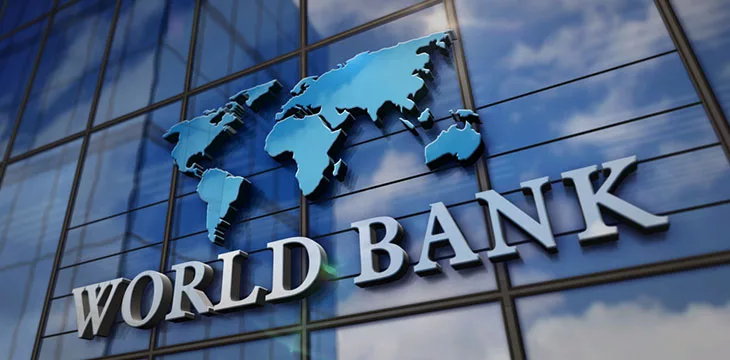|
Getting your Trinity Audio player ready...
|
The World Bank could be pivoting to blockchain technology in the future following the release of a report exploring tokenization for infrastructural projects.
The 49-page report shines the spotlight on the benefits of digitizing the debt financing processes for global infrastructure projects using blockchain. A large chunk of the report gravitated toward the application of blockchain by the World Bank in the face of dwindling funding sources but pointed out several challenges plaguing a full-scale adoption.
Right out of the gate, the report identified two ways tokenization with blockchain could improve the processes of the World Bank. The first is to democratize funding to a wider class of investors by tokenizing infrastructure securities and reducing the cost and time of issuances.
The second application identified by the report’s authors is the use of blockchain to improve the transparency of processes, particularly those related to budgets. By relying on blockchain and smart contracts, the World Bank’s contractors and subcontractors can avoid disputes by relying on the immutable nature of blockchain-based transactions.
“Smart contracts enable the programming and auto-execution of various operating scenarios to transparently verify invoices as per the terms of the contract,” read the report. “This increases transparency in contract administration and reduces the need for a full-time contract administrator.”
While there are several benefits associated with tokenization for the World Bank, the report highlighted numerous challenges line up against its adoption. The first of such challenges is the lack of a globally recognized tokenized standard characterized by varying anti-money laundering (AML) and Know Your Customer (KYC) processes.
Other challenges associated with their usage include cybersecurity concerns and the legal status of smart contracts and digital tokens. The report hailed the U.S., Luxembourg, Switzerland, and the European Union as jurisdictions with a robust legal framework to support tokenization.
Emerging markets bear the brunt
According to the findings of the report, emerging markets and developing economies face the gravest challenges of implementing tokenization due to a lack of regulatory frameworks and an absence of pilot programs.
However, the authors maintained that emerging markets stand to gain the most from tokenization, given its ability to improve private sector confidence. Other benefits include automated auditing, lower financing costs, and detailed project monitoring.
To achieve these benefits, the report suggests harmonizing regulation across different jurisdictions, capacity building, and increasing pilot testing and sandboxing “to gain practical insights.”
Watch: Tim Draper talks tokenization with Kurt Wuckert Jr.

 02-16-2026
02-16-2026 




